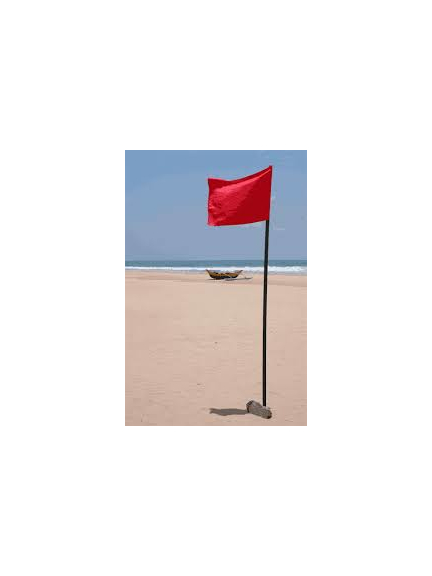
A lovely day by the seaside can often have disastrous consequences and we're not just talking about lack of sun cream.
Her Majesty's Coastguard are an elite team that respond quickly to all manner of sea and beach rescues and are an absolute godsend should you ever need them. However, their resources can be stretched, so let us all take a little more care when visiting the coastline and hopefully they may have the chance for a quick tea break.
Knowledge is power, so let's all get armed with important beach safety advice that can save lives!
Firstly, find the lifeguard patrolled beaches. A quick search online will be able to provide you with the locations that have manned lifeguard stations to provide an extra set of eyes and skills that are on hand to help should trouble arise. Essential for those with children or who are less able swimmers.
When you get to the beach read the sign. It's not just there to look pretty, it is full of useful information about that specific beach. Whether it is from dogs being allowed to specific area hazards and prohibited activities.
Do you know your flags? You may have heard the term swim between the flags but which flags? We'll give you a brief rundown:
Red & Yellow flags = Life-guarded area. Safest area to swim, body-board and use inflatables.
Black & White Chequered flags = For surfboards, stand-up paddle-boards, kayaks and other non-powered craft. Launch and recovery area for kite-surfers and windsurfers. Never swim or body-board here.
Red flags = DANGER! Never go in the water when there are red flags showing!
Orange Windsock = Indicates offshore or strong wind conditions. Never use inflatables when the windsock is flying!
Riptides (Rips) are strong currents running out to sea, which can quickly take you from the shallows out of your depth. Rips are especially powerful in larger surf, but are also found around river mouths, estuaries and man-made structures like piers and groynes.
They can catch even the most experienced beach-goers out, so don't be afraid to ask lifeguards for advice. They will show you how you can avoid rips, but if you do get caught in one:
If you see anyone else in trouble, alert the lifeguards or call 999 or 112 and ask for the Coastguard.
Check on the tide times before you travel so you're aware of high and low tides. These can be life saving, if the tide comes in so high that it cuts off the beach. Like aeroplanes be aware of your escape route too.
Lastly swimming in the sea is very different to swimming in a pool. With currents to watch out for things can change rapidly so stay safe!
I'm Sarah and I live just outside Barnstaple near Umberleigh.
I love sport especially rugby, cricket and golf and want to hear your thoughts on the site and add events and blogs on subjects that interest...
The following Cookies are used on this site. Users who allow all the Cookies will enjoy the best experience and all functionality on the site will be available to you.
You can choose to disable any of the Cookies by un-ticking the box below but if you do so your experience with the Site is likely to be diminished.
In order to interact with this site.
To show content from Google Maps.
To show content from YouTube.
To show content from Vimeo.
To share content across multiple platforms.
To view and book events.
To show user avatars and twitter feeds.
To show content from TourMkr.
To interact with Facebook.
To show content from WalkInto.